WHAT DOES IT MEAN TO BE AN ENGLISH-SPEAKING CHINESE?
By Ouyang Yu
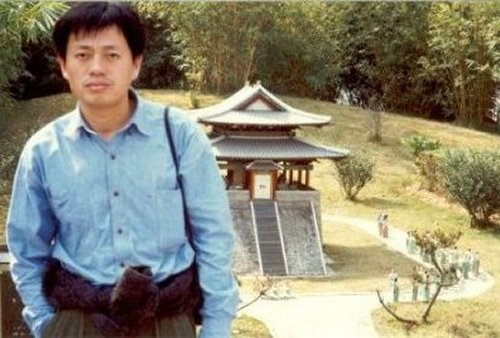
[Above] Ouyang Yu in Shenzhen (Photo by Lu Yan, 1996)
"..Once a Chinese, always half a Chinese."
From a poem by Ouyang Yu
To answer the title question, another question comes to mind: Does language change one's identity? I know that citizenship doesn't. Many years ago when a Chinese writer came back from China I asked her what she thought of her experience there. "Wonderful," she said. "But what about Australia?" I asked her, knowing that she had struggled to get her citizenship. "After all, this is not your country," she emphasized. That conclusive remark echoed down the years and is echoing today. I don't know whether I agree with her entirely but part of me is never quite comfortable with being in Australia.
Perhaps, as an artist, I am destined to be uncomfortable anywhere?
My uncomfortableness may be attributable to the languages or the need to accommodate two languages. It may also have something to do with the culture or lack of it in the environment in which I currently find myself. It is further exacerbated by the realization that this duality may have to accompany me throughout the rest of my life with no hope of redemption, no hope of ever returning to the original state of oneness, which may itself be an illusion, contrary to the common assumption that "migration is a one-way journey".[i]
Anecdote I: The other day, a door-to-door salesperson, a Dutch-Malay-Chinese, came to me to sell something. We had a short, interesting conversation, in which he warned me in these words that I always remember: Don't take me for a Chinese for I am not! If China invaded Malaysia, I would defend against it!
Two Tongues Twisted Together in Love and Hate
I wrote this line about seven or eight years ago while I was working on my PhD at La Trobe University. It was an intense period of acculturation and adaptation, akin to death, killing one life while helping the other life to grow. Later, I found out, as I confessed in an interview, that my effort at growing a new life had met with the strongest resistance from within Australia and I called that an invisible force to "push me back".
It was almost as if an insistent voice kept saying to you: Go back to your origins. Stay being Chinese. Be happy with who you are and don't pretend to be what you are not. Anyway, I guess I managed to die a death, at least for myself, if not for anyone else, completing my cycle of identity change, a linguistic operation on identity if you like, as represented by the title of my second book of poetry, Songs of the Last Chinese Poet.
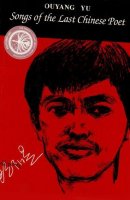
|
Anecdote II: I had been living under the illusion that somehow my Chinese name was unique until tonight when I surfed the net and found half a dozen name-sakes, a general manager of a company in Shenzhen, a character in a novel, an official in the early twentieth century, etc. That prompted me to ask this question: Are we really that unique? If my name can be so generic as to be easily shared by so many different people, fictional or real, in different times and places, thus having no uniqueness about it, will not my identity be also subject to open for renovation and corruptible by external influences? (25/06/01) |
[Above] Songs of the Last Chinese Poet (Cover design by Shi Xiaojun, 1997)
I don't know if it makes sense to liken the process of acquiring a second language to a kind of second birth but the duality that accompanies it or results from it, for me, is quite similar to the first birth that comes out of the motherhood and the fatherhood combining the feminine and masculine qualities. It is like growing another tongue which forces you to express yourself differently is why I often wonder about the possibilities of a father tongue side by side with a mother tongue.
Back in China in 1999, after nearly 10 years' residence in Australia, I found I was surprisingly less Chinese than I was Australian in that I was physically less tolerant of the heat, the dust, the crowds, the smell, even sometimes the food, and the people, to the degree that at the end of my residence all I wanted to do was fly back to Melbourne to see its blue sky and breathe in its clean air. Strangely, though, English as a language was fast deserting me, so fast that I had ceased writing poems in English altogether by the end of two weeks and would even make stupid spelling mistakes such as spelling "solicitor" as "solisitor" at the end of two months when I gave a talk at a university in Shenzhen. I was in fact becoming more Chinese than ever before, which perhaps was part of the reason why I wanted to hurry back to scrape back what little Australianness was left in me. Or was it? Was it that simple?
Meanwhile, I experienced another push, the push back by the forces of China where my poetry written in that language on the dynamics of politics, language, sex, and culture, has met with non-acceptance and non-publication. You might say that many Chinese poets themselves have the same problem but for me it is different. I write the language as a foreigner, not as the owner of that language any more, alienating myself at one remove as someone who does not endear himself by harking back to the ancient theme of love of the motherland and all that sort of thing. The gap left between these two pushes is indeed too narrow for survival. I have managed to survive without much success.
I guess what I am saying here is that even without learning a second language one is born with dual qualities but the acquisition of a second language accentuates the duality. Any English major in a Chinese university may have heard the adage that if you want to master the English language, forget Chinese and try to think in English! That is how colonial-minded the Chinese can be in their attempt to master a foreign language, forgetting the simple fact that in mastering the English language, they make the language their own master and are, in turn, paradoxically mastered by the language itself, a case of self-colonisation little discussed.
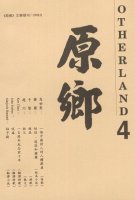
|
I call this process self-colonization in which one is convinced of the superiority of the other language and in learning that language tries to overcome his own language and culture by turning himself into another language by which he then is enslaved as I am now. I don't know how many people have actually achieved the erasure of their Chineseness but at one stage I tried so hard to literally erase the Chinese language in me that I did everything in English, speaking and writing and reading things in English, wanting to be totally English in some way. In retrospect, it is hardly necessary and seems a waste of time and effort for the end result is that at best you are an English-speaking Chinese and at worst a Chinese who speaks English with an accent. |
[Above] Otherland 4 (Cover design by Shi Xiaojun, 1998)
On the contrary, the push into English produces a reverse effect in that I, for one, became keenly aware of my own cultural and literary heritage and took to studying Chinese literature in its fictional and poetic forms. I guess this is also part of the reason why there are so many Chinese poets who prefer to write in Chinese despite their university degrees in English literature, including Hu Shi, Xu Zhimo, Sang Ke, Zhang Shuguang, Ma Yongbo and Bai Hua and it also helps explain why some of the best Chinese scholars and writers such as Zhang Longxi and Ya Ding went back to their homeland eventually after many years overseas, other reasons apart.
Studying the Other makes one even more oneself.
Quotation I: "In fact the more I learn English/The more I appreciate the beauty of Chinese/To be honest, several of my masterpiece poems in Chinese/Were completed in English classes" (Hou Ma, "Learning English", translated by Ouyang Yu)
Australian Form, Chinese Content or the Other Way Round?
Recently, a Chinese I met told me that although he had lived in Australia for nearly 15 years he still felt Chinese. When I asked if he was a citizen, he said he was but it did not matter because for him Australian is the form and Chinese is the content. The conversation moved from there until I found out that neither was he comfortable in China when he went back. In fact, he could not stay long there, which set me wondering if he had in fact the Chinese form and the Australian content without even realizing it.
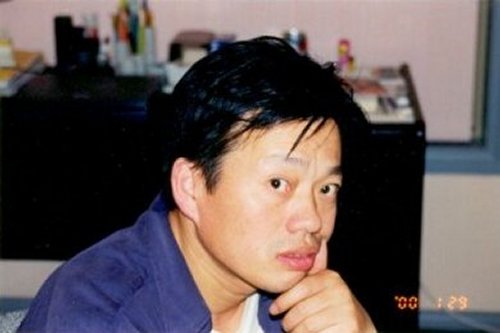
[Above] Ouyang Yu (Photo by Wang Jinjun, 2000)
And that probably applies to Australian-born Chinese and people of Chinese origins who have been in this country for a long time, possibly for many generations. My findings from a series of interviews conducted last year with Chinese-Australian writers show that those who were either born in this country or originally came from bilingual places like Hong Kong and Singapore do not closely identify with the Chinese culture and tradition. Even if they do watch Chinese related movies or videos and read books about China and Chinese in English, they do not feel close to that culture as they do not have the intimacy and the directness that the Chinese language gives them. In a way, they look Chinese but probably feel Australian or Western in their bones and blood.
As a popular expression puts it, they are the xiang jiao ren (the banana person), yellow on the outside and white on the inside, or in my own way of putting it, having the Chinese form and the Australian or Western contents. It is thus little wonder that in one of the international conferences held at La Trobe University a few years ago, when every white academic was united in their condemnation of Pauline Hanson's racism, one Australian-Chinese woman stood up and said she supported Pauline Hanson because she found there were too many Chinese coming into this country![ii] It partly explains the reason why I found it easier to have a conversation with a full-blood Australian than with, say, a Singaporean Chinese, which is exactly what happened a few days ago when I had a dinner with some Singaporean poets along with some Australian friends. I ended up talking with an Australian guy nearly all the time and found it hard to think of things to say to my fellow Singaporean-Chinese poets!
The problem is, as I said to a Chinese academic in China, you can never peel this skin off you. No matter how well you speak and write English, and whether you think or act like a true blue Aussie (is there such a thing?), your identity follows you like your skin, impossible to tear off, even to wear off. And sometimes this may work for you but, more often than not, it doesn't. Take William Yang who related his early experience of being called a "Chink" even when he was fourth-generation Chinese in Australia and could not speak a word of Chinese.
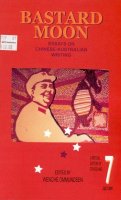
|
Take myself. As a "true blue Chinese" (is there such a thing?), I had great difficulty obtaining a job teaching English in China because the requirement is exclusively for "native speakers of English" when I went back to be writer in residence in Beijing because the stereotypical perception is that native speakers of the language are the owners of that language whereas the foreign speakers of that language are perhaps only temporary residents in the language. Even in Australia, if you apply for a job teaching English or Australian literature, you are immediately recognized as someone who is not legitimately competent because you have got the wrong face, the wrong skin and the wrong accent whereas if you apply for a job in mathematics or the like you are okay because you are believed to be born for it. You can never win in this sort of situation. |
[Above] Bastard Moon (Cover design by Shi Xiaojun, 2001)
Anecdote III: In a recent reading by some young Singaporean poets, an Australian audience asked this question: Why do you not become, say, an IT engineer instead of writing poetry? And years ago, when my son first arrived in Australia, an Australian friend of mine observed that he could grow up to be a very good businessman.
We live in stereotypes and, sadly, we sometimes are stereotypes ourselves, in the gaze that never seems to change.
Two Hearts, Two Tongues and Rain-coloured Eyes
This is the title of a forthcoming poetry book of mine. I know I am repeating myself with the "two tongues" metaphor but it is important to emphasize their role in fostering the "two hearts". A double-tongued person is one who must also have a twin-heart. He has a divided loyalty and, in my case, finds it more positive than negative. Which is a bit of concern, of course, to the Australian identity or nation building, or the Chinese one, for that matter. In Chinese terms, I would be described as someone with a "reverse bone" (fan gu) in my head; read "reverse" as opposite to anything that is obverse (orthodox, right, mainstream, or whatever). The same is true of me in English or Australian terms. You remain loyal to both countries and yet are at the same time at variance with both. In due course, you first grow two tongues and then two faces. Although the Chinese expression liang mian pai (a double faced person) that means the double-dealer or the double-faced behavior or an act of duplicity is very negative, it is not necessarily so overseas. If you look at Chinese restaurants in Chinatown in Melbourne, you see the two faces everywhere. Take Flower Drum, whose Chinese name is Wan Shou Gong (Longevity Palace). Take also Post-Deng Café, which is actually called Xiaoping Canguan (Xiaoping Restaurant). Even Australian companies adopt this double-faced strategy when they go to China. For example, Colonial Mutual calls itself Kang Lian (healthy union) in Chinese, happily shedding its "colonial" connotation, while National Mutual is called Guo Wei (national guard).
Anecdote IV: In English we say "Mum and Dad" but in Chinese we have to say "Dad and Mum". There are many such instances of reversal. Westerners wear black in mourning while Chinese wear white. In English we say "landslide victory" but in Chinese we say "economic landslide", meaning "economic disasters". In English we say "you are joking" but in Chinese you say "are you joking?" or "Don't be joking!" In English you say "skin deep" but in Chinese you say "skin shallow". My chapter on this phenomenon has grown to 20 pages and more. But what does this suggest? Does this suggest we are poles apart in our ways of doing things and thinking about things? If so, what about people like me who possess the two extreme languages? Are they being constantly torn apart by the necessary conflicts between them? What sort of identity will be shaped by this? Are bilinguals and multilinguals a totally different species from normal monolingual human beings? Does this polarity necessitate the reversal of our character like the reversal of our names, with surnames becoming given names and given names, surnames?
And eventually, you grow or are forced to grow two hearts as well. I watched a Lonely Planet program on Discovery Channel a few nights ago about a journey to Greece. The remark the traveler makes about Greece is interesting. She says that their heart is East and their mind is West. I don't know how that works but years ago I wrote a Chinese poem about my exile in Australia describing myself as having two hearts, one English and the other Chinese. Probably it is only natural in our time to have two hearts, and a culture capable of possessing many hearts that cling to it will be one that is most dynamic. As far as I know from my own experience, the emphasis on having only one heart and undivided loyalty often produces the opposite result by either severing your heart from you, leaving you with no heart of your own, or by forcing you to secretly grow an extra heart that wanders away as so many have experienced in China. The ability to tolerate the existence of two hearts and multiple hearts will be a touch-stone for this nation in our times.
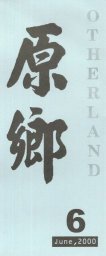 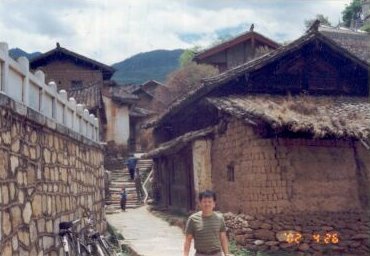 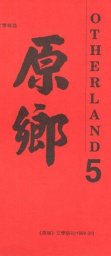
[Above Left to Right] Otherland 6 (Cover design by Shi Xiaojun, 2001) Ouyang in Drum Stone Town in Lijiang, Yunnan, China (Photo by He Gang, 2002) Otherland 5 (Cover design by Shi Xiaojun, 2001)
Anecdote V: One word Chinese use for "speaking" is "cao", as in "I cao Chinese" or "I cao English". If I tell you what "cao" also means in another context, you may be repulsed, for it means "f-u-c-k". But it is interesting that way as it suggests a dynamic relationship of love with the languages. You make love to the Chinese language as you make love to the English language if you can manage it. Although it does carry an incestuous overtone because you make love to your mother tongue and father tongue, it is one of the best ways, in my case, to describe my writing and the state of my bilingual existence.
Many years ago when Liu Binyan published his reportage The Second Loyalty, it caused a stir and was savagely attacked by the Chinese literary establishment but welcomed by the reading masses. Any cultural or political system that institutes single-mindedness and single-heartedness is bound to punish those with a second loyalty. Apart from being loyal to the Party and to your motherland, how can you be loyal to anything else? From time to time I feel the pressure on me to remove the second heart of mine and to be only loyal to Australia as One Nation with all its open and hidden supporters have demanded of us. At the end of ten years in Australia, I am less sure than ever. I think I also have a second loyalty, to no-one else but myself as an artist, a truth-sayer, and my first loyalty is to this belief that Australia will grow more open-hearted and open-minded than it is now and become a nation of multiplicities combined in one. It is still too young and too comfortable for that, where the push for a national identity based on white Anglo-Saxon linguistic and cultural heritage sits painfully uncomfortably with the likes of us. Queen's Birthday is a good thing only because we have a long weekend but what has that got to do with me and what is there to celebrate about? The same is true of ANZAC Day. Honestly, I have never been to it in these ten years and you may well regard me as un-Australian in that sense - but I like the fact that Australians don't have to go.
Translating Myself
One of the challenges a bilingual writer faces is the translatability of himself or herself. That is whether you can translate yourself, how and how well. In my case, I have been translating myself into both English and Chinese languages but have got to a stage where I am no longer able to translate my recent work in which not only direct translation but also a free translation is not possible and any attempts at such translations would involve heavy annotation and explanation. I think this is because my work, particularly in Chinese, orients more and more towards the language itself, focusing on its linguistic and literary associations, and tries to create new meanings out of a hodgepodge of tired words and phrases as well as expressions. In addition, I attempt to write-collage Chinese into English or vice versa, the way an Australian wears jeans bearing one or two Chinese characters that he or she doesn't even know the meaning of. These experimental essays with both languages make it impossible to translate myself and literally carve myself into two persons.
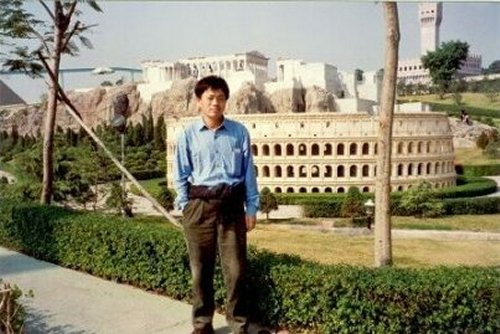
Ouyang Yu in Shenzhen 2 (Photo by Lu Yan, 1996)
Quotation II: "Why are there so many Chinese who migrate into English/trying hard to become white people of a yellow race?" Ouyang Jianghe, "Between Chinese and English", translated by Ouyang Yu.
The question for me was and still is, and perhaps more so, how we can enrich both cultures and languages in a way that monolingual and monocultural people whose knowledge of other cultures only comes from translations in their own language will find hard to do. A translator is not necessarily a traitor, as the old jargon goes. He or she must be a creator who has the power to open up a completely new space for the present and the future. As I find out, direct translation is often poetry. Take the English word "landscape", to which we are so used that we hardly ever know that we can describe it otherwise and even when we translate the Chinese word feng jing into English we mindlessly pick up a dictionary definition "landscape" to match it up while totally forgetting that it could be easily rendered "windscape", a word whose poetic beauty far transcends the philistine possessiveness of the English word.
I mean why do we always think in terms of physical and tangible things, a piece of land to be paid to travel to and be gazed at and owned, not something that is ephemeral and intangible, such as wind, a windscape? Take also "on second thoughts". Is that our limit? Do you only think twice? The original translator who turned san si er hou xing into "look before you leap" certainly missed the important point here for we could effortlessly have created "take action on third thoughts" based on the Chinese san si or "third thoughts".
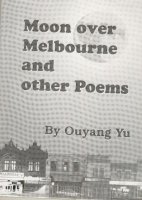
|
If it doesn't make sense, it is only because our thinking is limited by our own language to the second thoughts, not the third, so that we never think beyond the narrow windscape that our language confines us in.
If we only allow meaning to dominate our understanding, we shall get into the habit of matching things up by groping for the equivalents in the narrow dictionary definitions, instead of finding poetry that introduces new meanings, as in the case of turning "the apple of my father's eye" into the trite Chinese expression of "the shining pearl on my father's palm" or matching "love me love my dog" with "love my house love the crow that perches on its roof" (ai wu ji wu).
Without stretching the point, I think translating oneself is of special importance for people who straddle cultures, particularly in the multicultural Australia that is dominantly monolingual. |
[Above] Moon Over Melbourne and Other Poems (Cover design by Papyrus Publishing, 1995)
It is in this process that cultures begin to enrich each other, two hearts are combined in one and two tongues reach a happy union or reunion, and it is in this process that new meanings grow on the carcasses of the old stereotypes and the making of new identities becomes possible. More than a hundred years ago, Henry Lawson said: Chinese have to be killed or cured. Now I say: the fear of hyphenation and hybridity, two great keywords of our times, has to be killed or cured.
Quotation III: "Although I wear western suits/my heart remains Chinese/even if I am born in another country/it won't change the Chineseness of my heart…" (from a popular Chinese song sung by Hong. -Kong singer Zhang Mingmin, translated by Ouyang Yu)
Well, I don't know. All I know is that the two rivers, Chinese and English, are running entwined in me, indistinguishable from each other. It is not even necessary to distinguish them.
Footnotes:
[i] Shen Yuanfang, Dragon Seed in the Antipodes: Chinese-Australian Autobiographies. Melbourne University Press, 2001, p. 15.
[ii] The same tendency is also noted by the author of My Fortune in Australia, in Bruce Jacobs and Ouyang Yu (trans) Bitter Peaches and Plums. Monash Asia Institute, 1996.
About the Writer Ouyang Yu
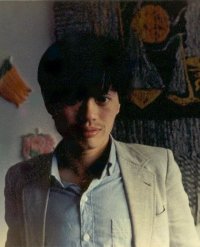
|
Originally from P.R. China, Ouyang Yu holds a doctorate in Australian literature from La Trobe University, Melbourne. Moon over Melbourne and Other Poems and Songs of the Last Chinese Poet were shortlisted for the 1999 NSW Premier's Literary Awards. In 1998, his monograph, "Representations of Australia and the Australian in the Chinese and Hong Kongese Media from 1985 to 1995" was published by Centre for the Studies of Australian-Asian Relationship, University of Queensland. He is now editing Otherland, the first and the only Chinese-English bilingual literary journal in Australia. In 1999, he was awarded a grant by AsiaLink to be writer-in-residence at Beijing University, China, to write his non-fictional book, On the Smell of an Oily Rag: Notes on the Margins. He is presently working on his second novel, Loose. |
[Above] Photo of Ouyang Yu by Wei Xinhong, 1988.
I Next I
Back I
Exit I
Thylazine No.3 (March, 2001) |



